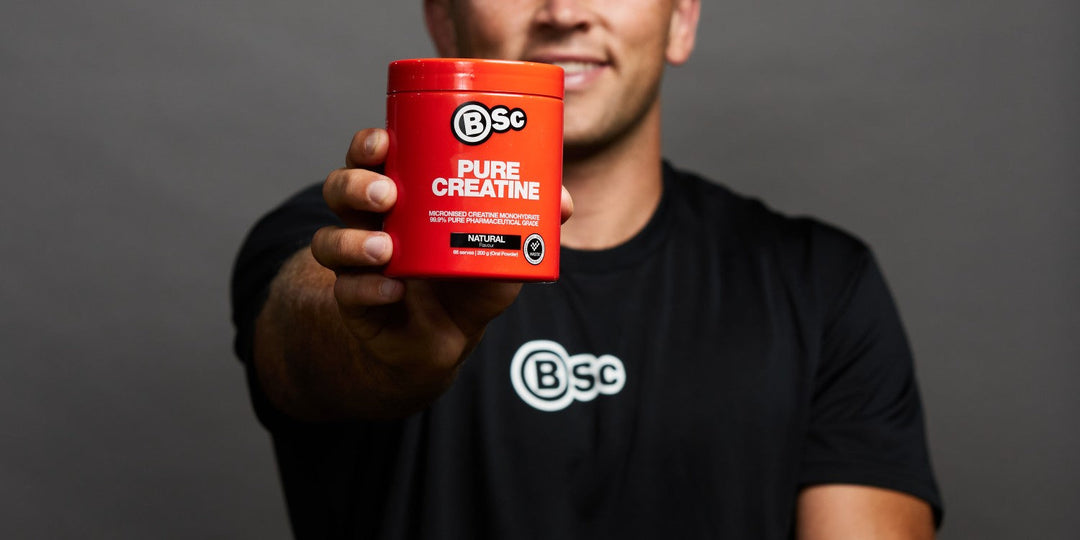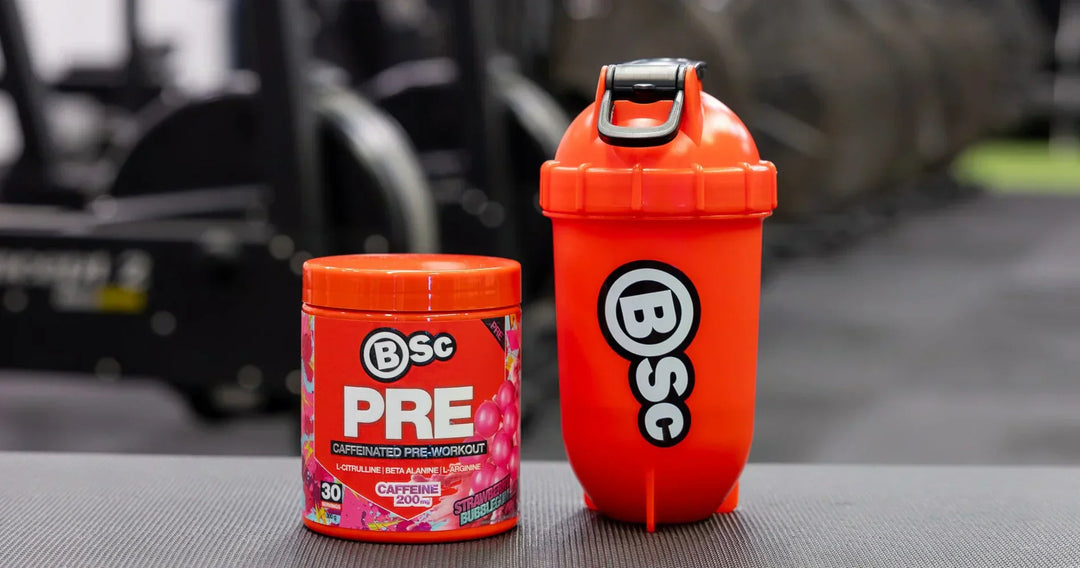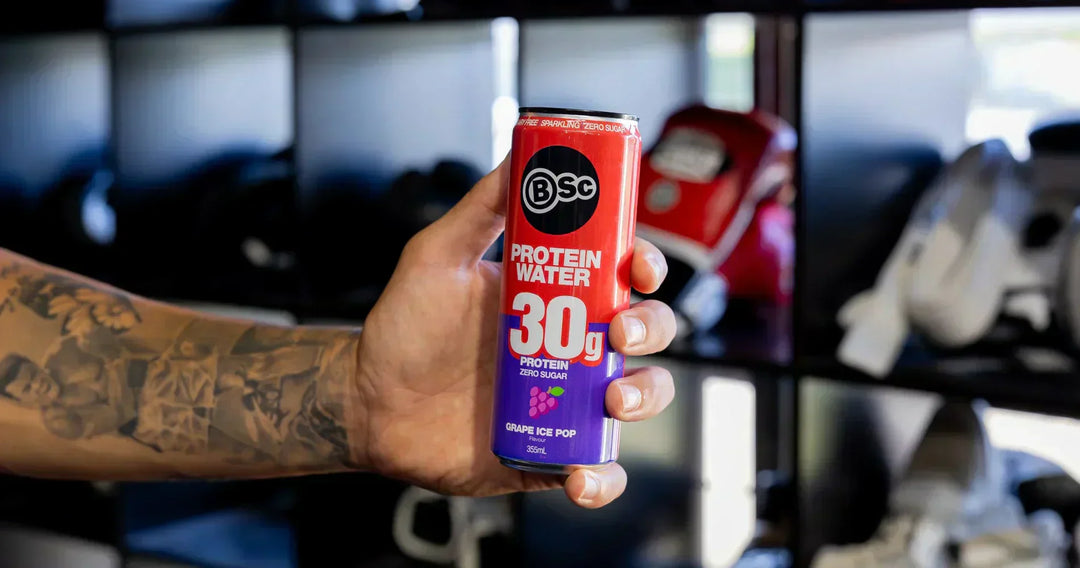Hey Body Science team! My name is Harriet Walker and I'm an accredited sports dietitian, and I want to give you tips on heaps of different topics so you can build a fitter, healthier and happier body. I'm an accredited sports dietitian and I’ve done many studies in the field of nutrition. I've got a degree in Human Biology and Human Nutrition, so I know how the body works, the chemistry, all the physiology bits and pieces about the body. I've also got a Master's degree in Nutrition and Dietetics. That means I can work in a clinical setting but I current choose to work with athletes, both weekend warriors but also right up to elite level athletes.
We're going to be starting with a really basic topic: how to build your fittest body. Each week I work with heaps of clients so I have heard everything under the sun about building a healthier body and people have tried lots of different things. But one of the key things with building a healthier body is consistency. So, what I want to work with my clients is on finding those things that they're falling over in their own lifestyle. It doesn't really matter what you're doing, as such, if you can be consistent with it. So, what we’ll look at is going through their full lifestyle history and pinpointing what this person sitting in front of me actually needs to change. In essence, everything works; there are a lot of different diets out there - and believe me, I have tried them - but we need to find out what this person needs to do to make a change.
My Background I've always been a rower and I worked at a boarding school in Wales coaching rowing. All through school I was competing at rowing and then I got into surf boat rowing, but I've also done a stint as a bodybuilder. So, I’ve competed in a pink shiny bikini on stage with those big plastic heels and been as lean as 10% body fat. I’ve also done a little bit of CrossFit, I've done a little bit of power lifting and at the moment my gig is strong men/strong woman competition because I like to lift heavy things. Throughout all of this, I’ve not only been able to apply my theoretical textbook knowledge but I've also learnt a lot of the ins and outs that you can only learn through doing. So, the information that I provide to you is not only evidence-based information that you can learn from and take away, but it's also the stuff that I learned when I'm working with people day to day and that stuff is really important because it makes it real and it makes it tailored to the person rather than the generic fad diet that is hot this week. When it comes to building your best body, the tips I’m going to talk about are evidence-based but there's also a little bit of day-to-day know-how that I'm going to throw in.
Think About More, Not Less The first thing I want to talk about is adding in before you take away. Very commonly when people start a diet, the first thing they do is take away too much. They get hungry, they get cranky, they've cut out carbs or they’ve cut out fruit, or they've cut out some other specific food group. And, generally speaking, it can be done without the recommendation of a professional, and this leaves a person on something that's unsustainable. So, when I say everything works as long as you can maintain it, this is really the case. When we cut out too much, anyone can do an 8-week challenge or a 12-week challenge, but the question I like to ask is what happened at week 13? What worked in that diet you were doing and what didn't, and why are you doing it any longer? So, taking away is easy short term but if it's too much too soon it means that it's not going to be sustainable, so I like to recommend that people add-in. So, what does that mean? Adding in more fruit and more vegetables. We know that some 92% of Australians are not eating enough vegetables. People ask me all these tricky questions about the latest superfood or how to backload their carbohydrates, but if I ask them are if they eating enough vegetables I get crickets. One serve of vegetables is 75 grams or about a cup of salad. If you added in, on a current diet of 3 serves of vegetables, another 150 grams of vegetables or 2 cups of salad not only are you crowding out some of those less optimal foods but it doesn't even matter if you're not taking anything away because vegetables are so low in calorie you're not going to be boosting your energy intake by any significant amount, plus you're getting more nutrients. If you change nothing else you're actually hitting that fibre intake and that vegetable intake that we need to be hitting for good health generally. It means that you're improving the quality of your diet before you've even pulled anything away. Vegetables are one thing that you can definitely add more in!
Hydration is Key We kind of forget that we’re 80% water. I know I'm an absolute sucker for leaving the house without a water bottle on a hot day and I get halfway through the day and I'm feeling a bit fuzzy. Lack of energy isn't just because you haven't eaten or slept properly. Dehydration can also cause cognitive decline and it can cause you to be a little bit fuzzy in your head. I see this in athletes quite a bit and it's a really critical point when you're an athlete. But if you think about the everyday athlete, which is you going to work and getting through life, that's just as important as the elite level athlete, and water is so simple to add in. I sometimes flavor it; I might use Green Tea TX100 from Body Science, which is pretty yummy, to make sure that the water is a little bit more appealing or I just have a water bottle with me. For some of my athletes, I will actually get them to mark two hundred fifty millimeter increments so that they have got a goal to reach every couple of hours. Adding in more water, adding in more fluid, is another really important one.
Make Time to Rest We know that when we're hungry sometimes it can be due to lack of energy and our body craving that energy, so we can actually circumnavigate this problem by getting the sleep that we need. Everybody's got different amounts of sleep that they require. Generally speaking, 7 to 8 hours is optimal. Starting with even an extra half an hour, adding in before we take away anything else, is a really great way of building up that sleep as we go along, even if it’s fifteen minutes every week. Setting that clock back so you're building up your sleep hours is a really good way of doing it.
Move More Another thing is moving more. If you want to build your best body yet, exercise is fantastic. Going to the gym on a regular basis is great but these days we’re all very sedentary. For instance, I know when I'm in the office I'm sitting down for up to 8 hours without even moving. Sedentary behaviour is one of the key risk factors for a lot of different diseases and actually undoes the benefits of that planned exercise that you've done in the gym. I like to get people thinking about how many steps they're taking per day and breaking up their day with movement blocks, even if it's walking to go get a coffee or having a walking meeting instead of sitting down. Each time we’re adding just that little bit of extra exercise every day, we're adding in kilometres a week, and over the entire year that's going to keep your body in good working order just as much as doing the planned exercise.
Body Composition We want to be making sure that we're building lean muscle mass. So, again back to that question of what works. Long term, it needs to be about changing your body composition. Anyone can starve themselves to lose weight, but what kind of weight are you losing? If you're on a very low-calorie diet, you may be cutting out too much energy and actually chipping into your lean body mass.
Muscle is a metabolically active tissue; it requires energy to be built and also to be maintained. If you're starving yourself, you’re eventually not only going to be tapping into fat stores you're actually going to be breaking down proteins because our body needs protein for other things less important than muscle. We’ll start chipping into that lean muscle to service hair, skin, hormones, and all those other regenerative processes we need to do on a daily basis at the cost of our lean muscle mass. I explain it like this: If I’m a 60kg female and I've got 20% muscle compared to the same 60kg female who's got 30% muscle, the chick with a 30% muscle gets to eat more food. Harrah! So, basically, because she's got a higher lean muscle mass, her metabolic rate has gone up because that tissue is metabolically active. Our body's basal metabolic rate (or BMR) is increased and what we get is long-term: our body is burning hotter, so we can reduce our calories and get any kind of weight loss or we can be a little bit more targeted with the approach that we take to reducing calories, create a small energy deficit and actually optimise our body's ability to increase lean muscle mass.
You also need the stimulus to increase lean muscle mass, so obviously resistance training is going to be your best bet to increasing lean muscle mass. I love weight training and I encourage all my clients – males and females - to get into the gym, to start a program, get a personal trainer, get comfortable with a barbell and actually start to work on increasing lean muscle mass. People can freak out a little bit when you mention weights, which is stereotypical, but not all girls are going to get scared of doing weights these days. I think we're all a little bit more educated on the benefits of weight training now. I can tell you that I've been trying to put on lean muscle for about 10 years now and I'm probably only just starting to look like I go to the gym.

For females, putting on a little bit of lean muscle mass isn't going to make you big and bulky. It’s actually going to make you look better naked, which is always a win. Especially for women who are getting older, increasing lean muscle mass and building a healthier, stronger body is actually going to assist with maintaining a healthy weight as well. Once we get past the mid-30s, early-40s and beyond, I hear that a lot of women have trouble losing weight or maintaining weight, and no matter what they do and no matter how many calories they cut they can't seem to maintain that that healthy weight. Getting into the gym is not only good for confidence and strength, but we’re also actually creating a more optimal body composition.
There are lots of studies on women post-menopause or peri-menopause which show that increasing lean muscle mass and increasing that metabolic rate is actually more successful with weight loss and maintaining a healthy weight than women who are just doing cardio exercise. So, it doesn't matter how old you; I’ve met plenty of older people in their sixties and seventies who are still throwing a barbell around, so I really encourage people to increase that lean muscle mass for long term body composition improvement.
Summary There's a few really basic things that we can do to create a healthier body.
- Focus on what you can have rather than what you can't have. We want to make sure that we’re adding in, we’re crowding out those less optimal foods; we’re creating volume by having lots of low processed foods, increasing our fruits and vegetables and water and I those high fibre nutrient-rich foods.
- We want to make sure that we're moving more. That’s not just planned exercise; we want to have the incidental exercise. Aim for that ten thousand steps a day, and if you can do more then don't stop at ten thousand, keep going. Break up your workday and get those steps in.
- Finally, focus on increasing lean muscle mass. This is for anyone from 16 upwards. Get under a barbell, get comfortable, get yourself a program and start learning about weight training.
This is the first blog in our Active Lifestyle Academy series for Body Science. We will be covering a range of different topics so if you have a topic that you want to find out more about, or if you've got any questions, make sure you get in contact. Follow us on Instagram, like our posts, make sure to share it with your friends. If there's a topic that you’ve heard about and you think someone needs to know about it, be sure to share and be active on social media. Stay tuned for the next blog where we’ll be covering another nutritional-related topic.



